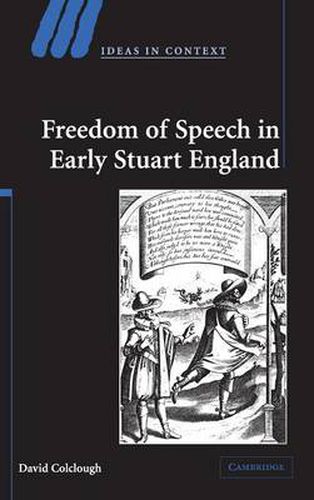Readings Newsletter
Become a Readings Member to make your shopping experience even easier.
Sign in or sign up for free!
You’re not far away from qualifying for FREE standard shipping within Australia
You’ve qualified for FREE standard shipping within Australia
The cart is loading…






This book discusses a central chapter in the history of free speech in the western world. The nature and limits of freedom of speech prompted sophisticated debate in a wide range of areas in the early seventeenth century; it was one of the ‘liberties of the subject’ fought for by individuals and groups across the political landscape. David Colclough argues that freedom of speech was considered to be a significant civic virtue during this period. Discussions of free speech raised serious questions about what it meant to live in a free state, and how far England was from being such a state. Examining a wide range of sources, from rhetorical handbooks to Parliamentary speeches and manuscript miscellanies, Dr Colclough demonstrates how freedom of speech was conceived positively in the period c. 1603-1628, rather than being defined in opposition to acts of censorship.
$9.00 standard shipping within Australia
FREE standard shipping within Australia for orders over $100.00
Express & International shipping calculated at checkout
This book discusses a central chapter in the history of free speech in the western world. The nature and limits of freedom of speech prompted sophisticated debate in a wide range of areas in the early seventeenth century; it was one of the ‘liberties of the subject’ fought for by individuals and groups across the political landscape. David Colclough argues that freedom of speech was considered to be a significant civic virtue during this period. Discussions of free speech raised serious questions about what it meant to live in a free state, and how far England was from being such a state. Examining a wide range of sources, from rhetorical handbooks to Parliamentary speeches and manuscript miscellanies, Dr Colclough demonstrates how freedom of speech was conceived positively in the period c. 1603-1628, rather than being defined in opposition to acts of censorship.